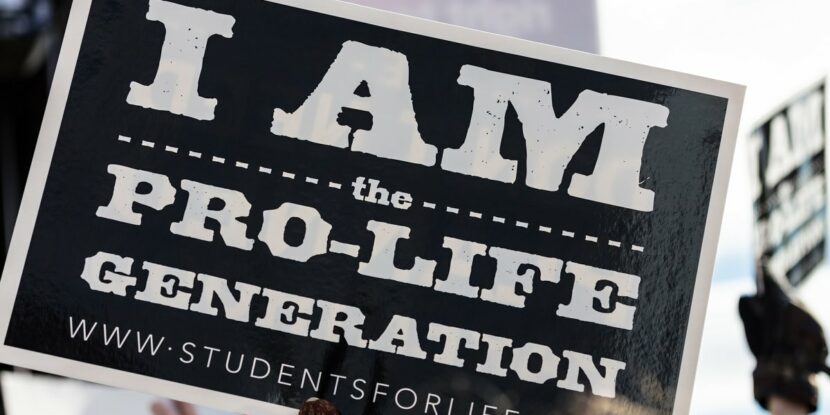Late last month, the Missouri Democratic Party announced a new platform, containing an amendment that has since raised a great deal of controversy within the party. At their quarterly meeting, the Missouri Democratic Party approved updates to their ten-year-old platform and included an unexpectedly welcoming caveat for pro-life party members:
We respect the conscience of each Missourian and recognize that members of our party have deeply held and sometimes differing positions on issues of personal conscience, such as abortion. We recognize the diversity of views as a source of strength, and welcome into our ranks all Missourians who may hold differing positions on this issue.
Some Democrats, however, took offense at the inclusive nature of the platform statement, drafted by former Missouri state representative Joan Barry. Although the amendment was met with surprising support, some Democrats viewed it as a major party setback.
“I’m so angry. I think it’s a slap in the face to the base voters of the party,” executive director of NARAL Pro-Choice Missouri Alison Dreith said. “And it’s sickening for the Missouri Democratic Party to put our lives on the line like this.”
“Pandering to voters who are unlikely to vote for us, while alienating the base, frays trust in the party. It’s also a losing strategy,” argued St. Louis Alderwoman Megan Ellyia Green.
Barry, who drafted the bill, said that the amendment’s success is indicative of substantial pro-life sentiments within the Democratic Party. If more party members acknowledged their presence, Barry said, the party would fare better overall.
“We’re tired of being treated like second-class citizens in our own party,” Barry added.
The dispute raises the question of whether today, pro-life Democrats are an oxymoron. Advocates like Barry argue against this idea, as do Democrat lawmakers like U.S. Senators Bob Casey (Pa.) and Joe Donnelly (Ind.), both of whom have publicly claimed to be pro-life. Nevertheless, a look at the voting history of these supposedly pro-life senators — up for re-election this November — suggests otherwise.
Casey, who touts himself as a Democrat with pro-life views as staunch as his father (former Pennsylvania Gov. Bob Casey Sr.), has voted with Planned Parenthood Action Fund on 75 percent of abortion-related issues since 2011, when he voted to keep Planned Parenthood federally funded. In 2016, he voted 100 percent with NARAL Pro-Choice America — though that rating is likely to come down slightly this year after he voted in favor of a 20-week abortion ban this past January.
“According to his voting record, he’s voted only 20 percent for life in the 115th Congress,” said Casey’s GOP challenger Rep. Lou Barletta.
Sen. Donnelly, like Casey, also supported the 20-week abortion ban bill, and he voted against allowing minors across state borders to procure abortions. However, Donnelly also voted with his party in favor of the regulatory rule forcing taxpayers to fund abortion providers this March, and in 2015, he voted to ensure that Planned Parenthood would receive federal funding.
Some pro-life advocates argue that his vote in defense of the 20-week abortion ban bill is a weak indicator of his commitment to the pro-life movement. “We want pro-life leaders who are going to vote pro-life 100 percent of the time,” said Susan B. Anthony List’s communications director Mallory Quigley. “It doesn’t take huge political courage to vote for a ban on late-term abortion when you’re from one of the most pro-life states in the nation.”
Sen. Joe Manchin (W.Va.), another self-proclaimed pro-life Democrat, also has a mixed voting record on abortion issues. Manchin has consistently voted in favor of federal funding for Planned Parenthood, and he urged President Trump to choose a more moderate Supreme Court nominee. In an interview earlier this month, Manchin said that it would be a “red flag” if Trump picked a nominee openly in favor of overturning Roe v. Wade.
These allegedly pro-life Democrats in the Senate who consistently vote in favor of federal funding for abortion providers call into question whether pro-life Democrats in Congress actually exist — or are simply pro-life in name only.
In the U.S. House, however, three self-proclaimed pro-life Democrats representatives are somewhat more consistent in their support for pro-life policy. Perhaps the most visible is Rep. Dan Lipinski (D-Ill.), who has represented Illinois’ third district for over a decade and voted fairly consistently in favor of pro-life policies. Previously rated 100 percent by the National Right to Life Committee (indicating an unwavering pro-life policy stance), Lipinski has voted against federal healthcare coverage for abortion, human embryonic stem cell research, and transporting minors across state lines for abortions. He is also the only Democrat on the Bipartisan Congressional Pro-life Caucus, and serves as co-chair. He narrowly survived a pro-abortion challenge from Marie Newman in the Democratic primary earlier this spring, and is expected to prevail in the general election this November. Other House Democrat pro-lifers include Reps. Collin Peterson (D-Minn.) and Henry Cuellar (D-Texas), who have National Right to Life Committee ratings of 75 percent and 37 percent, respectively. Both also seem likely to be reelected.
Although Democrats in Congress who lay claim to a pro-life position are rare, Democrats who carry through on this claim are even rarer. Lawmakers like Casey, Donnelly, and Manchin voice a pro-life stance, yet seek to uphold Roe v. Wade and federal funding for the largest abortion provider in the country. Last year, even Lipinski and Peterson voted against repealing portions of the Affordable Care Act that provide tax subsidies for healthcare plans covering abortion.
According to a 2017 Pew Research poll, 22 percent of Democrats believe abortion should be illegal in all or most cases. This data seems to validate voices like Joan Berry and the Democrats for Life of America, who insist that there is substantial pro-life support in the Democratic Party. However, many Democratic lawmakers in Congress who claim to be pro-life have been inconsistent in their efforts to implement policy that reflect their claims. These inconsistencies of current lawmakers cast doubt on whether similar Democratic candidates on the ballot in November will carry through on their pro-life promises into the 116th Congress.
Photo credit: James McNellis via Flickr, CC BY-NC-ND 2.0


